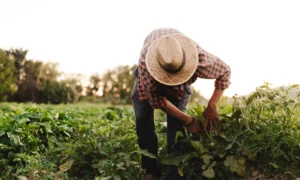Several international consumer goods companies are off track to achieve sustainable consumption and production by 2030, according to a new report from the CDP Consumer Deforestation Report called “No Woods for the Trees.” The report evaluated 22 companies according to scale and commodity use in the consumer goods sector including food manufacturers, personal and household goods makers, and fast food chains. The consumer-facing posture of these groups makes them highly susceptible to reputational risks from commodities-linked deforestation, while also facing operational risks from supply chain disruption.
Despite the net-zero deforestation target for 2020 set by the Board of the Consumer Goods Forum, only eight companies were found to be deploying comprehensive forest and land-use management practices. Danone, Nestlé, Unilever, and L’Oréal lead with strong governance of deforestation risk while Restaurant Brands International, which owns Burger King, Tyson Foods, and Kraft Heinz received some of the worst rankings in the report.
Among the eight most successful companies, landscape-style approaches and regenerative agriculture were common themes.
“These encompass an approach to land use management that recognizes that the competing priorities of people living and working within the landscape create problems that cannot be clearly formulated or solved. This means that they involve continuous adaptation and some degree of ‘muddling through,” Ling Sin Fai Lam, senior research analyst at CDP and author of the report, wrote to AFN via email.
“Danone, Kellogg’s and General Mills are investing in soil health initiatives, Mars has launched a program relating to yield improvement whilst McDonald’s is involved in a program focused on the recovery of degraded pasture. Nestlé has implemented agroforestry and reforestation practices as nature-based solutions for adaptation to climate change, and Unilever provides payments to producers for protecting existing forests and helping to regenerate forests and improve the sustainability of agricultural production where deforestation has already occurred.”
Although some companies’ ambitious targets indicate an understanding of the serious need for action on deforestation, none are taking concrete steps to significantly reduce deforestation risk in their supply chains, according to CDP. Current certification levels and traceability are not effectively tackling deforestation by its measure either.
“For the worst-performing companies, a lack of public disclosure on forest risk commodities (FRCs) use as well as deforestation governance and strategy. Without understanding FRC use, companies struggle to develop effective policies and initiatives to tackle forest loss,” Lam says.
An additional challenge is the amount of investment required to implement truly transformative sustainability initiatives, she adds. Leaders in the space have started partnering with other businesses as well as NGOs and governments to leverage available resources.
Palm oil has been the focus of deforestation efforts but risks from other commodities like soybean, cattle, and paper have grown under the radar, with the potential to disrupt global supply chains. Certified volumes of palm oil still only account for 20% of global production. CDP’s research shows that just three companies achieved 100% certification in palm oil and just one in timber.
“Certification is challenging for a variety of regions. It requires behavior change from producers which can be difficult to implement without the right incentives. For example, the premium for certified palm oil has dropped from $50 per tonne in 2004 to $1-$30 per tonne in 2019 with the costs of production remaining $8-$12 above that of conventional palm oil,” explains Lam. “This means unsustainable production remains the cheapest option for many farmers in the short term.”
Forest governance, which can fall under local or national jurisdiction, land tenure, and tree ownership rights are additional challenges, as well as the time it takes to build new partnerships with producers and local governments.
As we’ve written about previously, widescale deforestation targets and sustainability initiatives, in general, are a tricky subject. Companies are announcing them right and left with the hopes of appeasing consumer demand with perhaps a bit of altruism thrown in. But whether companies are promising enough, doing enough to meet their promises, or whether consumers are too impatient is hard to determine.
“Companies may reassess their level of ambition in the future, but these commitments have helped to raise awareness and deepen understanding of these issues for the future. Hopefully, future corporate commitments will also consider how to drive more systematic change needed to tackle these complex issues and the world needs to see,” says Lam. “These businesses have realized that these issues cannot be tackled by one company alone, and ambitious commitments have encouraged some businesses to work together, building partnerships between businesses, governments, and NGOs. This is positive.”
Here is a chart highlighting the report’s conclusions:
| League Table rank | Company | Country | League Table weighted rank | Transition risks rank | Physical risks rank | Transition opportunities rank | Climate governance & strategy rank |
| 1 | Danone | France | 7.42 | 3 | 5 | 6 | 5 |
| 2 | Nestlé | Switzerland | 7.44 | 8 | 6 | 5 | 3 |
| 3 | L’Oréal | France | 7.96 | 9 | 8 | 3 | 6 |
| 4 | Unilever | UK / Netherlands | 8.05 | 20 | 4 | 1 | 1 |
| 5 | Kellogg | USA | 8.10 | 10 | 7 | 9 | 2 |
| 6 | Mars | USA | 8.24 | 13 | 2 | 2 | 8 |
| 7 | Pepsi-Co | USA | 10.25 | 5 | 13 | 17 | 7 |
| 8 | McDonalds | USA | 10.42 | 16 | 18 | 4 | 9 |
| 9 | General Mills | USA | 10.45 | 12 | 12 | 10 | 10 |
| 10 | Kao Corp | Japan | 10.48 | 17 | 19 | 7 | 4 |
| 11 | Fonterra | New Zealand | 10.87 | 1 | 14 | 12 | 16 |
| 12 | Reckitt Benckiser | UK | 10.99 | 7 | 9 | 16 | 12 |
| 13 | Colgate Palmolive | USA | 10.99 | 6 | 3 | 20 | 11 |
| 14 | Procter & Gamble | USA | 12.19 | 15 | 10 | 13 | 13 |
| 15 | Campbell Soup | USA | 12.39 | 2 | 11 | 21 | 17 |
| 16 | Mondelez | USA | 12.74 | 19 | 1 | 15 | 13 |
| 17 | Yum! Brands | USA | 13.31 | 14 | 21 | 8 | 18 |
| 18 | Estée Lauder | USA | 13.84 | 11 | 20 | 14 | 19 |
| 19 | ConAgra | USA | 14.57 | 18 | 15 | 18 | 15 |
| 20 | Kraft Heinz | USA | 14.77 | 4 | 17 | 22 | 22 |
| 21 | Tyson Foods | USA | 16.73 | 22 | 16 | 11 | 21 |
| 22 | RBI | Canada | 16.98 | 21 | 22 | 18 | 20 |
| Weighting | 35% | 10% | 25% | 30% |





